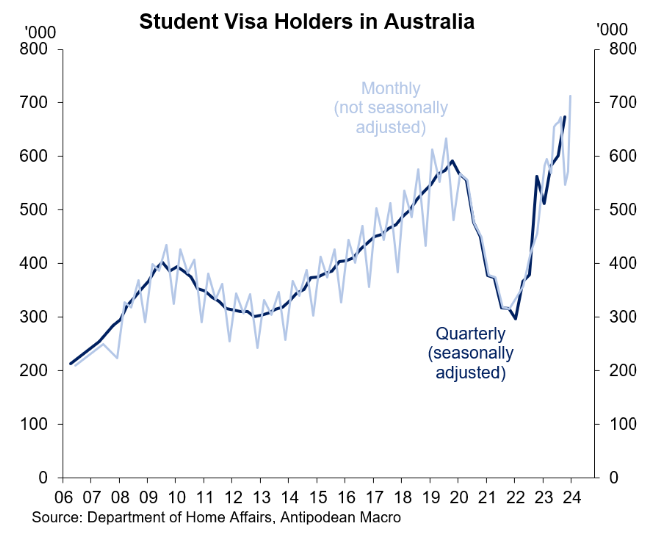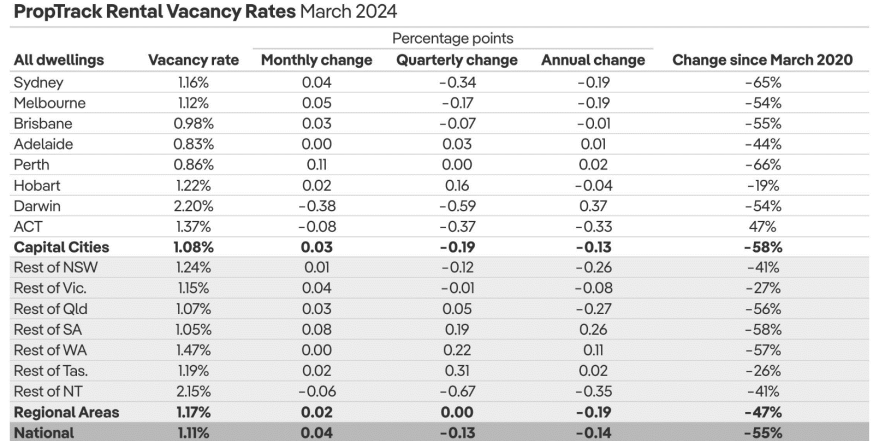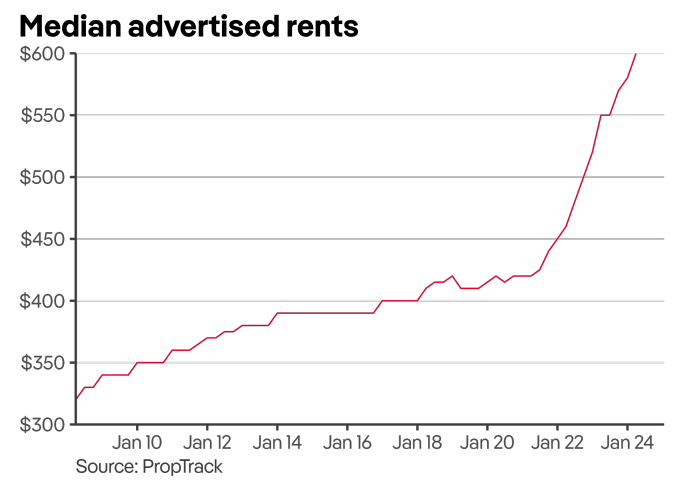International students have been the driving force behind Australia’s record net overseas migration boom:

The latest temporary visa data from the Department of Home Affairs shows that there were a record 713,144 international students in Australia at the end of February 2024:

This record surge in net overseas migration has more than halved Australia’s rental vacancy rate, according to PropTrack:

It has also driven median advertised rents up by 38% since the beginning of the pandemic:

As a result, many Australian tenants have been driven into financial stress, forced to live in shared housing, or pushed into homelessness.
In contrast, Australian universities are profiting handsomely from record international student fees.
A report published on Monday in The Australian reported, “Australia’s biggest universities are failing to provide 80% of their foreign students with guaranteed housing, despite taking in $9bn a year in tuition fees”.
“Universities have built enough dorm rooms to accommodate only 40,000 students nationally – a fraction of the 205,000 international students they have enrolled to study in Australia this year, while private training colleges have failed to provide any accommodation, even though they have accepted 149,000 foreign students this year”.
“The failure of the $26bn international education industry to provide accommodation has meant at least 400,000 international students have been forced into a private rental market with the tightest vacancy rates on record”.
“Universities benefit significantly from international students and they have a responsibility to help house them’’, Federal Education Minister Jason Clare said on Sunday.
“Why should universities be permitted to bring in unlimited numbers of international students, particularly to Melbourne and Sydney where the housing crisis is particularly serious, when they fail to take adequate responsibility for where these students will live?’’ Federal Opposition Education spokeswoman Sarah Henderson said.
It is a classic example of universities privatising the benefits of record immigration while passing the costs on to Australians, particularly renters.
One solution that aligns universities’ interests with Australian tenants is to make universities liable for housing their overseas students.
For example, the government should require institutions to provide on-campus housing for at least half of their international student enrolments.
So, if universities and colleges want to increase their international student population, they must develop more on-campus housing.
Such a strategy would limit foreign student numbers (and hence net overseas migration) and directly relieve strains on the private rental market, creating a win-win situation.
Universities, not taxpayers, are currently ‘clipping the ticket’ and earning economic rents from Australia’s immigration system through student fees.
Australian universities are non-profit entities that do not pay taxes (unlike other ‘export’ sectors). This is despite universities operating like corporatised, profit-maximizing companies.
The federal government should, therefore, levy universities for each international student who enrols.
This would ensure that Australians gain a financial benefit from the international student trade, much like a sovereign wealth fund receives revenue from mineral exports.
In short, the entire international education system must be overhauled to balance the costs and benefits for universities and Australians.
Requiring universities to provide on-campus accommodation proportionate to the number of international students enrolled and charging a fee per international student are obvious policy solutions.

